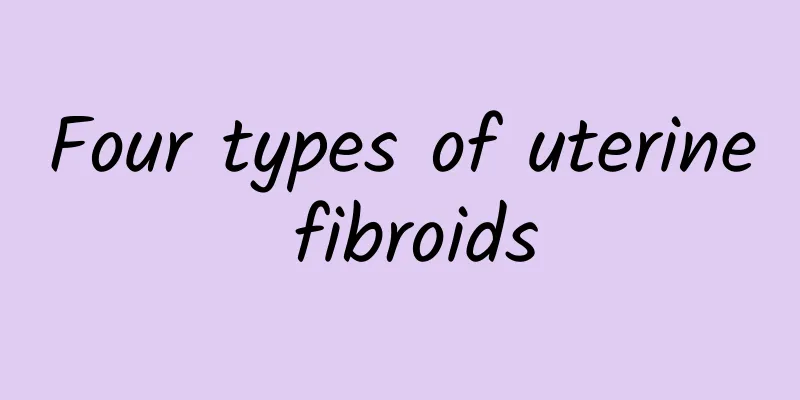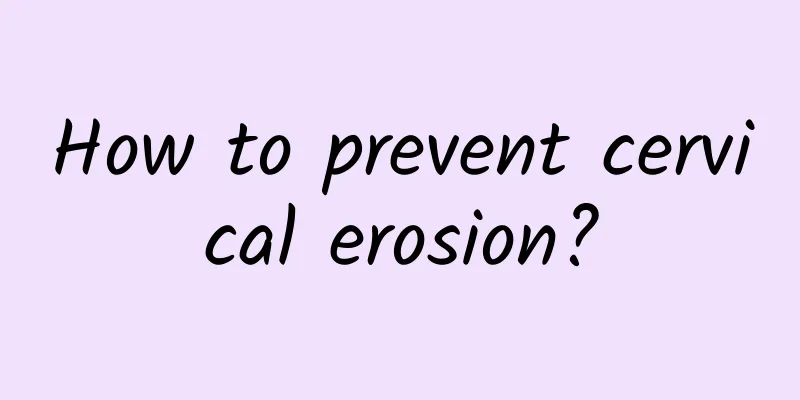Why do many people not have uterine fibroids? Why do some people's uterine fibroids disappear?

|
Why do many people not have uterine fibroids? Uterine fibroids are one of the most common reproductive system tumors in women, but many people still do not have them. This has puzzled researchers, who have tried to find the reason. This article will explore why many people do not have uterine fibroids and analyze why some people's uterine fibroids disappear. Genetic factors: Why some people are prone to uterine fibroids Genetic factors have long been thought to be involved in the development of uterine fibroids. Some studies have shown that people with a family history are more likely to develop uterine fibroids. However, although genetic factors may increase an individual's risk of developing the disease, there are still many people who do not have uterine fibroids. This may be because genetic factors are not the only factor in the development of uterine fibroids. Hormone levels: Why uterine fibroids disappear in some people Changes in hormone levels play an important role in the development and growth of uterine fibroids. The growth of uterine fibroids is stimulated by estrogen, while progesterone is thought to inhibit their growth. Therefore, some studies have suggested that an increase in progesterone levels may be one of the reasons why some uterine fibroids disappear. Some people may not have uterine fibroids because their hormone levels have always remained within the normal range and did not stimulate the growth of fibroids. Lifestyle: Why many people do not have uterine fibroids Lifestyle is also associated with the development of uterine fibroids. Some studies have found that obesity, unhealthy diet, and lack of exercise are associated with the development of uterine fibroids. Therefore, some people may not have uterine fibroids because they have a healthy lifestyle, maintain moderate exercise and a healthy diet, thereby reducing the risk of uterine fibroids. Medical intervention: Why uterine fibroids disappear in some people In addition to the individual's own factors, medical intervention is also believed to have a certain impact on the development of uterine fibroids. Some studies have shown that drug therapy and surgical intervention can reduce the size of uterine fibroids or even make them disappear. These treatments can achieve this effect by inhibiting the growth of fibroid cells and promoting their necrosis. Therefore, the disappearance of uterine fibroids in some people may be because they have received medical intervention measures that effectively reduced the size of the fibroids. Why do many people not have uterine fibroids? In this article, we look at why many people do not develop uterine fibroids. Genetic factors, hormone levels, lifestyle, and medical interventions are thought to be important factors in whether an individual develops uterine fibroids. Some people may not develop uterine fibroids because they do not have genetic predisposition genes, have stable hormone levels, live a healthy lifestyle, or receive medical interventions. However, further research is needed to delve deeper into the specific roles of these factors to help more people prevent and treat uterine fibroids. |
<<: What is uterine fibroids? How to treat uterine fibroids? Causes and treatment methods
Recommend
What are the symptoms of cervicitis
Cervicitis is one of the common gynecological dis...
Low-calorie starch, no fat, homemade salmon and wild mushroom steamed rice
Who says you must not eat starch to lose weight? ...
What is the impact of chocolate cysts on human life expectancy?
What is the impact of chocolate cysts on human li...
What method do we choose to treat ectopic pregnancy?
Generally, if an ectopic pregnancy is diagnosed, ...
What are the treatments for right ovarian cysts and what should we pay attention to in our daily life?
What are the treatments for right ovarian cysts? ...
Can I eat cantaloupe during my period? Don’t eat too much at once
You can usually eat cantaloupe during your period...
Do women know what cervicitis is? What are the hazards of cervicitis in women?
Because of various reasons, female gynecological ...
Treatment of pelvic inflammatory disease
Pelvic inflammatory disease can be said to be a c...
How to prevent irregular menstruation in women?
If women do not take appropriate care and nursing...
Does menopause affect pregnancy?
Will menopause affect pregnancy? In fact, it is s...
What are the symptoms of menopause? Physical health will also be greatly affected
Women will enter menopause around the age of 50. ...
Let's understand the reasons for the recurrence of ovarian cysts
Ovarian cysts are a common disease. In life, ther...
The main causes of cervical hypertrophy
Cervical hypertrophy is caused by the stimulation...
Urine bleeding in the elderly after menopause
Urinary bleeding in the elderly after menopause m...
What are the causes of uterine fibroids? Common symptoms of uterine fibroids
Uterine fibroids are the most common benign tumor...









